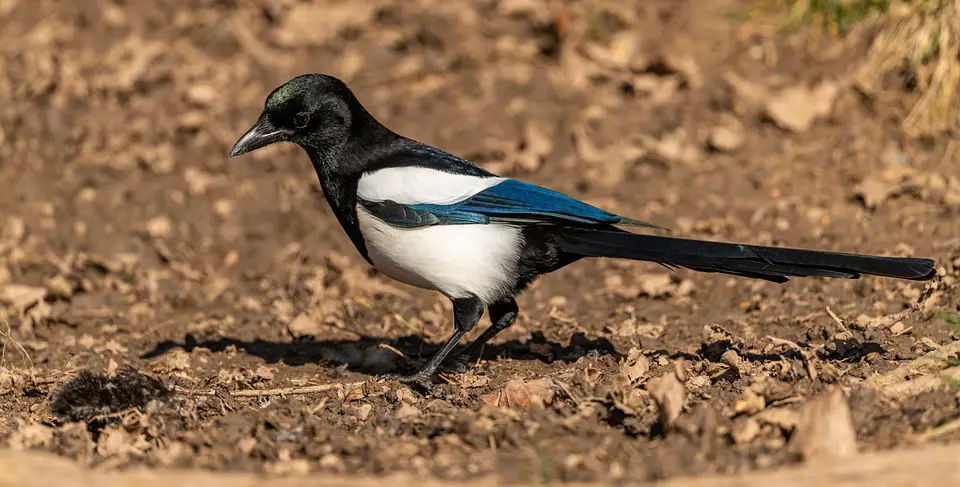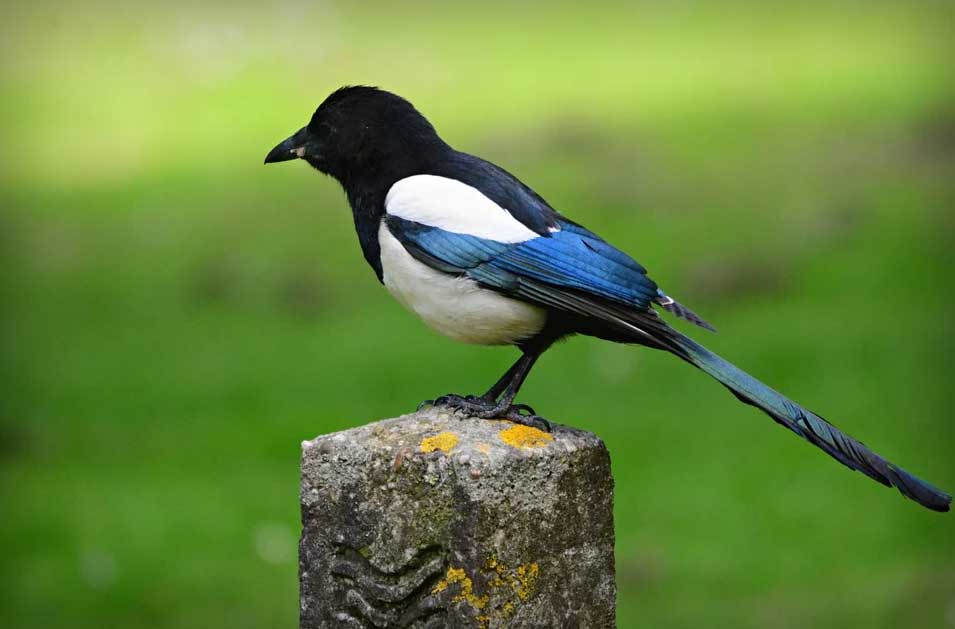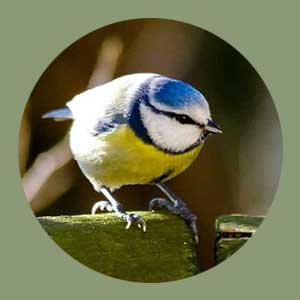There’s no denying that magpies have a bad reputation. With their scavenging and predatory nature, few people are happy to find them in their garden. If you have ever heard their noisy squawking or seemingly seen them chase off other birds or cats from your garden, you might be interested to know are magpies territorial and if it’s the same one causing a nuisance in your garden every time.

Once magpies reach breeding maturity, usually at 2 years old, they will settle into a territory with their mate. They build nests in thorny bushes or high in tall trees and defend them, sometimes to the death.
They will see off any species of bird that poses a threat to their boundaries, including other magpies.
Table of Contents
A mischief of Magpies
There are over 600,000 territories of magpies in the UK, they are resident virtually everywhere apart from the highlands of Scotland. At any time there are 25%-60% of the birds not involved in a breeding pair and therefore don’t have any need for a territory of their own.
Magpies that aren’t breeding tend to create large flocks that live in huge 50-acre spaces. Birds join and leave the flock at will, usually when a male and female pair up and seek a territory.
The collective noun for a group of magpies has many names, a flock, a charm, or a mischief are some of my favourites.
Why are there several magpies in 1 territory
We know that they are very territorial, so you would think there should be just 1 or 2 magpies in each territory. Firstly, each territory covers a large area of around 5 hectares, that is 12 acres. Secondly, there is always a magpie that likes the look of another bird’s territory and will attempt to take it over.
This will always be a male magpie from the flock of non-breeding birds.
Once he has targetted a territory, he will move in close until he gets a response from the owner, who won’t take it lightly and cause a drama. This is usually the cause of the familiar “chak-chak-chak” call, it’s a warning noise. The owner magpie will try and chase the other one-off, but it is usually too late, the closest flock will have overheard and close in to watch the drama unfold. Remember back to your school days when a fight started and just one call of “fight” had all the kids congregated round? It’s very much like that and is known as a Ceremonial Gathering.

The owner magpie holds his territory
This is usually the case, and the invading bird is seen off. The flock disperses leaving the breeding couple in peace. But not for long.
The takeover attempt will have given the outsider chance to recce the territory and to figure out the strength of the holding magpie.
If he thinks he has the beating of the bird he will make several further attempts to steal the magpie’s territory.
Sometimes his judgement is off and he will receive a beating from the holding bird. He will probably then settle for a smaller territory somewhere nearby, around the perimeter of the land he truly wanted. Occasionally, he senses the impending trouble and flees, the holding magpie might then attack one of the watching birds, as a show of strength.
If the takeover is successful, it isn’t necessarily that non-breeding bird that moves into the territory, it might be the most powerful, ‘top dog’ within the watching flock.
Final thoughts…
The noise that magpies make during a takeover effort can be heard from far away, but often it is just that, noise. It is a show of bravado and just ‘handbags’, it rarely turns into more.
Are magpies territorial? Absolutely, but you needn’t worry about them harming your pets, their bark is definitely worse than their bite!

Such a great article! I’m from Germany and I had a territorial fight unravel right before my window, it was incredibly loud a lot of magpies sat in nearby trees to observe the ‘claw fight’. Then a crow interrupted the fight and jumped the weaker magpie while all other magpies protested because the fight was interrupted. It was intense and brutal, your article helped me understand what was going on in the first place, so thank you! 🤗
I also enjoyed the article – I am spending a lot more time than usual looking out of the window onto the garden, with home office, and I often watch the local magpie pair. This week I have seen one of the magpies chase away pigeons (on one occasion taking a few feathers as the pigeon was cornered at a hedgerow), blackbirds, thrushes and even sparrows (bully!). The most surprising was seeing the magpie chase a squirrel repeatedly, until it left the area.
I have two magpie that come to my garden feeders.I live in East riding of Yorkshire by the sea and fields opposite my home .
I get lots of garden birds when the magpie come the other birds are not bothered by them.I love all birds its so good for all of us to embrace wildlife as we all share this earth beneth our feet .
My magpie is 1 year old been home and yesterday when she was outside window playing, other magpies attacked to her and she flew away and never back. Can she survive in wild? Can other magpies hurt or kill another magpie?
Liked this very much! I have a pair of Magpies that are bringing up a young one and they noise they make is incredible.. the young one is still a grey colour, instead of white, and they come into our garden quite a bit. I see them chasing off the local pigeons (which I happened whilst I was writing this)which is a good thing, really; otherwise the pigeons take over.
I’ve only just found this thread. Was looking for info on magpies and crows.
We live in a woody area in a small city and have had a few crows live among our houses for many years. All with different voices and personalities. However, just this year magpies have moved in big time and the crows are nowhere to be seen. I miss them. They were much more likeable. The magpies have slowly been encroaching on the area, causing trouble! 10 years ago I never saw a magpie where we live. Only further south. Will the crows come back does anyone know? We also have our yearly nesting sparrowhawks at the moment which made me wonder if this is why the crows are on the QT just now. Although that never stopped them mobbing a local buzzard. Any other experience like this I’d be interested in! Thanks